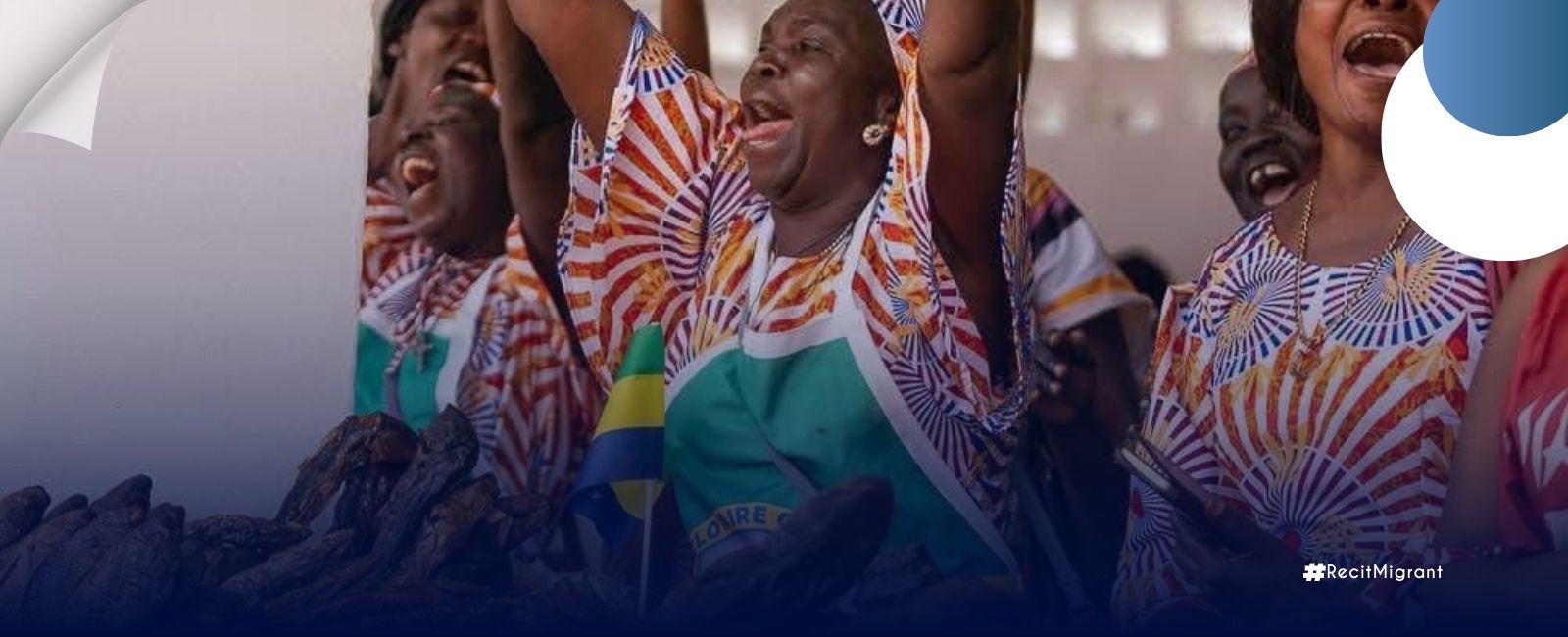

Tensions have risen in Gabon, a Central African country, following a government decision made on 12 August 2025 during a Council of Ministers meeting concerning the practice of certain ‘menial jobs’ by non-nationals.
In order to ensure that these jobs are held exclusively by Gabonese citizens, the government has decided to revise the regulations concerning occupations reserved for nationals, including positions in emerging sectors such as e-commerce and modern entrepreneurship.
“In addressing the issue of informal trade, the government noted that, while this sector is dynamic, it often operates outside the legal framework, which puts national entrepreneurs, particularly young people and women, at a disadvantage. As many of these activities are carried out by foreign operators, the Council has prohibited them from engaging in certain small-scale activities, including local trade, unauthorised money transfers, phone and small appliance repairs, street hairdressing and beauty services, unauthorised artisanal gold mining, informal intermediation in crop purchases and operating small workshops or gaming machines without proper registration,” the communiqué stated.
Curiously, this decision was made the day after an influencer and her friend posted an angry message online, shortly before the Gabonese president inaugurated the Lambaréné market. In the message, the influencer accused the Lambaréné city council of favouring foreign vendors over Gabonese ones when allocating market stalls. She singled out Beninese women in particular, claiming that they should not have access to the market.
The mayor’s clarifications, which were widely shared on social media, helped to set the record straight and counter the claims made by the two individuals, who were briefly detained for disturbing the peace before being released.
The government’s subsequent decision regarding this incident has led to questions about the manner in which it was reached, as it appears to be directly connected to the event itself.
Was it an error of judgment?
It is important to avoid causing one problem while trying to solve another.
Locals generally avoid ‘low-skilled jobs’, often because they cannot imagine doing such work in their own country. This reluctance is largely due to the negative social perception of these roles, unlike the esteem associated with more prestigious professions, such as public administration.
Consequently, many people engage in activities abroad that they would not consider doing at home, resulting in a significant presence of non-nationals in these types of jobs across many African countries. However, some locals are beginning to change their perception, recognising that these activities can alleviate unemployment and provide a modest income, as they have seen those who engage in them manage to get by.
In certain countries, the diversity of participants in these sectors has made them more viable and attractive while also preventing deregulation.
Therefore, it is important to carefully assess the situation before introducing reforms that may seem innovative on paper, but which could prove fragile or counterproductive in practice.
Avoiding the butterfly effect and history repeating itself
The intense online tension sparked by the influencer’s post and the Gabonese government’s decision was exacerbated by the subsequent social media backlash. In response, the Beninese government issued an initial statement urging its citizens residing in Gabon, as well as internet users in both countries, to remain calm.
On the sidelines of the 9th Tokyo International Conference on African Development, which took place in Yokohama from 20 to 22 August, the Vice-President of Benin met with the Gabonese Minister of Foreign Affairs. They discussed bilateral cooperation and how to manage recent controversies concerning Beninese nationals in Gabon.
In this context, it is reasonable to ask what the consequences might be if Gabon were to take reciprocal action against its nationals living abroad. This situation is reminiscent of the diplomatic conflict between Benin and Gabon in 1978, which resulted in the repatriation of thousands of people and had long-lasting effects on careers, family relationships and trade.
Given that many African nationals currently face restrictive migration policies worldwide, a similar scenario would be particularly damaging and must be avoided.
Reforming the informal sector without exclusion
Under the leadership of Brice Clotaire Oligui Nguema – who, alongside four other African heads of State, was received at the White House by Donald Trump on 9 July 2025 – the decision to declare certain foreign nationals ‘persona non grata’ in specific sectors of the informal trade has raised questions.
The Gabonese authorities present their plan to restructure the informal sector as a measure aimed at better organising economic activity and supporting national operators in their transition to the formal sector, offering simplified procedures, technical and fiscal support and tailored financing mechanisms. However, focusing these measures on specific non-national actors raises concerns about equal treatment within the sector.
Non-nationals constitute a significant proportion of individuals engaged in informal trade in many African countries, making substantial contributions to the local economy. Excluding them could reduce the effectiveness of the reform, despite its stated goal of strengthening the economic autonomy of Gabonese citizens, particularly young people.
Certain communities that have been established in Gabon for decades continue to play an active role in local trade and the development of specific sectors. The reactions of both Gabonese residents and expatriates highlight the importance of these contributions to the economy and the stability of the informal sector.
Therefore, gradually implementing the reform with the support of local authorities appears essential to achieving the goal of formalising and structuring trade, while maintaining a balanced relationship between national and non-national actors.
Who is a foreigner and who is not?
This question deserves careful consideration. ‘Who is a foreigner, and who is not?’ While reprisals against Africans outside the continent should be condemned, the gravest mistake would be for them to become victims on their own soil.
Critics state that at the very least, the Gabonese authorities should reconsider a decision that undermines African unity while continuing to organise and regulate economic activity within their borders. Otherwise, they risk providing a justification for the stigmatisation and marginalisation of not only Africans living abroad, but also communities already residing in Gabon.
As the saying goes, ‘He who does not know the direction of the wind should avoid blowing chilli powder.’ To err is human, but to persist in error is harmful, one said.
Recently Published
Subscribe to our newsletter!
Quick Links


